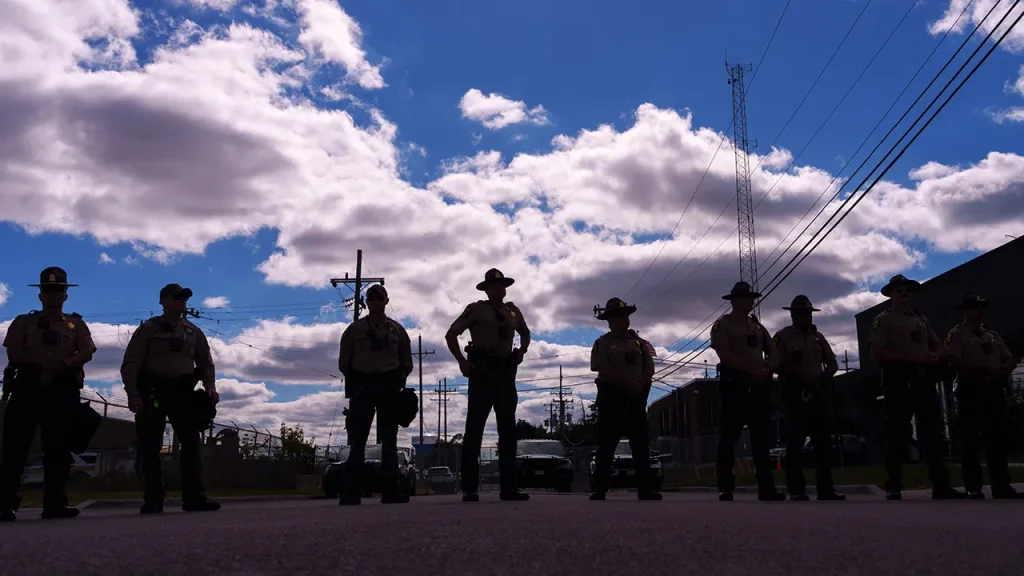Judge Limits National Guard Deployment in Illinois Amid Constitutional Debate
In a significant ruling that highlights the ongoing tension between federal and state authority, a federal judge has allowed National Guard troops deployed to Illinois by President Donald Trump to remain in the state but with substantial restrictions on their activities. U.S. District Judge April Perry ruled on Saturday that while the troops can stay, they cannot patrol or be deployed to protect federal property, effectively limiting their operational capacity in Chicago and across Illinois.
The judicial intervention comes after Judge Perry initially blocked the deployment entirely on Thursday, imposing a two-week moratorium that prompted the Trump administration to request an emergency stay. At the heart of the judge’s reasoning was her determination that there exists no credible evidence of a “danger of rebellion” in Illinois—a necessary condition for invoking the Insurrection Act, which would grant the federal government broad powers to deploy troops to states deemed to be defying federal law or failing to quell insurrection. “There has been no showing that the civil power has failed,” Judge Perry explained in her ruling. “The agitators who have violated the law by attacking federal authorities have been arrested. The courts are open, and the marshals are ready to see that any sentences of imprisonment are carried out. Resort to the military to execute the laws is not called for.”
The president’s consideration of the Insurrection Act—a power not exercised since the 1992 Los Angeles riots—has sparked intense constitutional debate. “I’d do it if it was necessary. So far it hasn’t been necessary. But we have an Insurrection Act for a reason,” Trump told reporters earlier this week in the Oval Office. This potential invocation comes as part of a broader federal deployment strategy that has already seen troops sent to Los Angeles, Washington, D.C., and Memphis, raising questions about the appropriate use of military forces in domestic law enforcement matters.
Judge Perry’s ruling particularly highlighted concerns about the precedent such deployments might set for federal-state relations and constitutional rights. In a pointed remark reflecting on the historical context of America’s founding, she noted, “Not even Alexander Hamilton could have envisioned one state’s militia to be used against another state’s residents because the President wants to punish those with views other than his own.” This statement underscores the fundamental constitutional questions at play regarding the separation of powers, federalism, and civil liberties in times of domestic unrest.
Saturday’s court order, which granted a temporary restraining order while allowing the troops to remain in place pending further legal arguments, represents a nuanced judicial response to a complex situation. “Members of the National Guard do not need to return to their home states unless further ordered by a court to do so,” the judge wrote in the order obtained by Fox News Digital. This compromise position allows for continued federal presence while significantly curtailing its scope and preventing potential confrontations between National Guard troops and state residents.
The legal battle over National Guard deployments in Illinois exemplifies the broader national conversation about appropriate responses to civil unrest, the balance between public safety and constitutional rights, and the proper division of authority between state and federal governments. As lawyers for both sides prepare for further court proceedings, the case stands as a reminder of America’s ongoing struggle to reconcile security concerns with its foundational commitment to limited government power and individual liberties. The ultimate resolution may establish important precedents for how similar situations are handled in the future, potentially reshaping the relationship between presidential authority and state sovereignty in addressing domestic disturbances.


